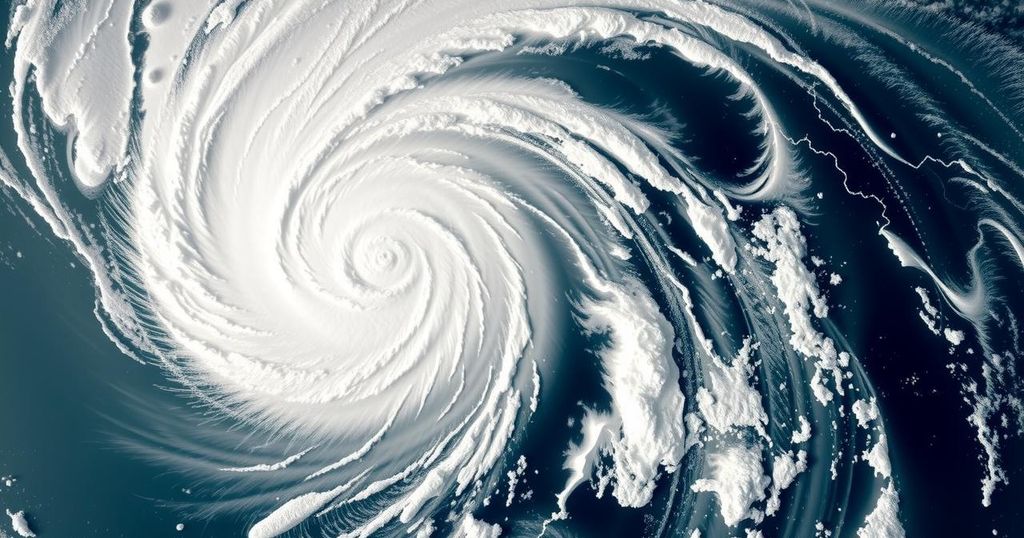World news
AFRICA, BRUNO RETAILLEAU, CHI, CNN, EMERGENCY RESPONSE, EMMANUEL MACRON, EUROPE, FRANCE, FRANCOIS BAYROU, FRANCOIS DUROVRAY, FRENCH INTERIOR MINISTRY, INDIAN OCEAN, INTERIOR MINISTRY, MAYOTTE, MOZAMBIQUE, NATURAL DISASTER, NATURAL DISASTERS, OLYMPIC GAMES SECURITY, PARIS, REUNION, WEATHER SERVICE
Daniel O'Connor
0 Comments
Cyclone Chido Devastates Mayotte, Threatens Mainland Africa with Flooding
Cyclone Chido has struck Mayotte, resulting in casualties and extensive damage as it heads towards Africa’s east coast. French authorities report significant destruction, with mobilization of rescue teams underway. The cyclone’s impacts extend to Comoros and potential flooding threats in Mozambique and surrounding countries. The event highlights the escalating severity of cyclones attributed to climate change in the region.
Cyclone Chido has wreaked havoc on Mayotte, a French territory in the Indian Ocean, resulting in multiple fatalities and extensive infrastructural damage. With reported wind speeds exceeding 220 kph (136 mph), the cyclone has devastated the island, which houses over 300,000 residents. French officials, including Interior Minister Bruno Retailleau, have stated that precise casualty figures remain undetermined due to ongoing rescue operations. The French Government has mobilized substantial resources in response to the disaster, sending 1,600 police officers and additional rescue personnel to aid the population and mitigate potential looting.
Furthermore, Prime Minister François Bayrou has indicated that vital public facilities, such as the hospital and airport, have sustained significant damage. The cyclone also impacted nearby Comoros, where authorities raised alerts due to concerns for missing fishermen amid worsening weather conditions. As Chido continues its trajectory towards mainland Africa, Mozambique has braced for potential floods affecting millions, particularly in the northern provinces. Countries such as Malawi and Zimbabwe are also preparing for the aftershock of the cyclone, which poses additional risks of flooding and waterborne diseases in the affected regions. The cyclone season, occurring from December to March, has seen a concerning increase in intensity due to climate change, placing vulnerable communities at heightened risk.
The report of Cyclone Chido underscores a pressing issue faced by island nations and coastal areas in the Indian Ocean and southeastern Africa during the cyclone season, which spans from December through March. This region has endured a series of powerful cyclones exacerbated by climate change, leading to severe humanitarian crises. Previous cyclones, such as Idai and Freddy, have left a devastating impact, highlighting the vulnerability of these communities. As climate patterns evolve, increased cyclone intensity poses significant challenges and threats, particularly to economically disadvantaged nations that contribute minimally to climate change yet bear the brunt of its consequences.
The devastation wrought by Cyclone Chido on the French territory of Mayotte, alongside the impending threat to mainland Africa, emphasizes the urgent need for comprehensive disaster response strategies. As hundreds of thousands face the ramifications of the cyclone, the mobilization of French authorities and ongoing rescue efforts represent a crucial response to this natural disaster. The larger implications of climate change on cyclone intensity necessitate robust international cooperation to support affected regions and address the underlying vulnerabilities of these communities.
Original Source: www.cnn.com




Post Comment